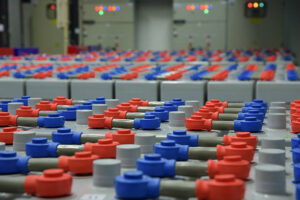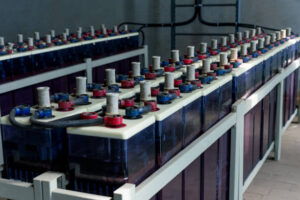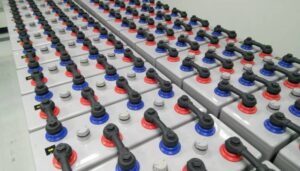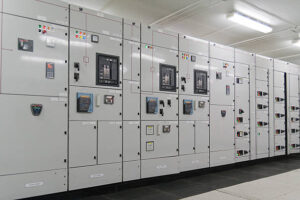Batteries are widely used on various different fields , even in our daisy life such as electrocar battery , electrical golf car , power forklift. If the power battery can not support the long time working and be exhausted so quickly . That will be a problem on batteries. Batteries factories generally do a series of common batteries before ex-factory including battery discharge testing to ensure the stability. Due to the complexity of battery chemical react and the difference in various materials , structures , manufacturing processes and use condition , it will result in large differences in battery characteristics from different manufacturers.
Batteries can be proceeded the battery discharge testing according to the standards specified by the battery manufacturers during the actual use of batteries
What is battery discharge testing ?
Battery discharge testing is a process of measuring the capacity and performance of a battery by discharging it under controlled conditions. The purpose of battery discharge testing is to determine how long a battery can provide power and the amount of energy it can deliver before it needs to be recharged.
During the testing, the battery is connected to a load, which can be a resistor, a device or a system, and the discharge current is measured over time. The discharge can be conducted at different discharge rates, temperatures, and voltages, depending on the type and application of the battery.
The discharge curve, which shows the relationship between the battery voltage and time, is plotted during the test. This curve is used to determine the capacity of the battery, as well as to identify any abnormalities or issues that may affect the performance of the battery.
Battery discharge testing is commonly used in applications where the battery is critical to the operation of a device or system, such as in automotive, aerospace, marine, and energy storage industries. It is also used to evaluate battery performance for renewable energy systems, electric vehicles, and other emerging technologies.
How to proceed the discharge testing ?
KV-3900 Battery capacity discharge tester is a intelligent test equipment which can carry on the discharge testing by constant current and constant power mode .
It can set the cutoff voltage , group voltage , discharge capacity and discharge time . The discharge curve can be query on the display screen and it can generate the data report for your needs.
To proceed with a battery discharge test, you can follow these steps:
- Determine the discharge rate: The discharge rate is the amount of current that will be drawn from the battery during the test. It should be chosen based on the application of the battery, as well as the manufacturer’s specifications.
- Choose the load: The load should be constant and represent the actual load that the battery will experience in the application. The load should not exceed the maximum current rating of the battery.
- Set the cutoff voltage: The cutoff voltage is the minimum voltage at which the battery is considered to be fully discharged. The cutoff voltage should be chosen based on the application and the manufacturer’s specifications.
- Connect the battery to the load: Connect the battery to the load and start the discharge.
- Measure the voltage and current: Measure the voltage and current of the battery during the discharge. This data should be recorded at regular intervals.
- Stop the discharge: Stop the discharge when the battery reaches the cutoff voltage.
- Calculate the capacity: Use the data collected during the test to calculate the capacity of the battery. The capacity is the amount of energy that the battery can deliver before reaching the cutoff voltage.
- Analyze the data: Analyze the discharge curve, which shows the relationship between the battery voltage and time, to identify any abnormalities or issues that may affect the performance of the battery.









